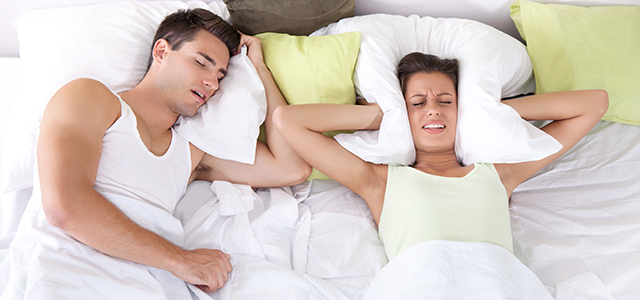The sleep apnoea symptoms you might not know about

Snoring and daytime drowsiness are probably the best known symptoms of sleep apnoea, but did you know there are quite a few others which aren’t quite as well known?
We’ve compiled a questionnaire we use to help our patients identify if they have the symptoms of sleep apnoea, and some of them might not be quite what you expected.
Download our comprehensive sleep apnoea guide here
Have a look through the list below:
- Does anyone complain that you snore?
- Has anyone told you that you stop breathing while asleep sometimes?
- Have you ever woken up struggling for breath or gasping for air?
- Have you ever woken up feeling your heart racing?
- Do you feel excessively sleepy or drowsy during the day?
- Have you put on weight which you have found hard to lose again?
- Do you have blood pressure concerns or are you receiving treatment for it?
- Do your legs jerk or kick during sleep?
- Do your legs become restless while attempting to get to sleep, or during the day?
- Do you have trouble getting to sleep?
- Do you have trouble staying asleep, or do you wake up in the middle of the night and just lie there trying to get back to sleep?
- Do you feel unusual sensations in your legs during the day?
- Do you ever wake up with headaches?
- Do you ever get heartburn during the night, or while lying down?
- Do you need to get up during the night to pass urine?
See what we mean? Not all of these are the kinds of things you might have immediately thought were associated with sleep apnoea.
More than one million Aussies suffer from sleep apnoea, and way too many of us are ignoring the symptoms.
Here are some scary statistics:
- 28% of men aged over 50 have sleep apnoea
- 70% of people who suffer from depression also have sleep apnoea
- 96% of people who suffer from reflux and bruxism (clenching and grinding teeth) have sleep apnoea
- Obesity and morbid obesity are high risk factors for sleep apnoea
Sleep apnoea can also lead to a whole raft of other health complications if it’s not treated. These include, but are not limited to:
- Clinical depression
- Diabetes
- Hypertension
- Dementia and Alzheimer’s
- Heart attack
- Stroke
Further to these, sleep apnoea is also a very common cause of fatal single vehicle accidents which occur because the driver fell asleep at the wheel, and is often associated with polycystic ovary syndrome.
What should I do if I think I might have sleep apnoea?
If you tick quite a few of these boxes, please don’t just ignore it and hope it will go away. Our principal dentist, Dr Bob Gibbins, has extensive experience in the area, and has been helping his patients get this debilitating disease under control since 1980.
Download our comprehensive sleep apnoea guide here
Dr Gibbins highly recommends the Oventus O2Vent device. This mouthguard-like device works by gently advancing the lower jaw to provide a non-obstructed breathing path. You can find out more about the O2Vent device here, or in the video with Dr Bob, below.
If you would like to book a sleep apnoea consultation with Dr Bob Gibbins and start your journey to a better night’s sleep, please contact us today.



